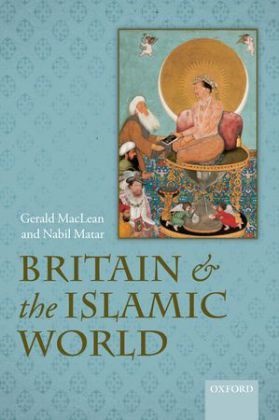Read more
Zusatztext Nineteenth century observers would say that the British Empire was an Islamic one; be that as it may, before Empire there was trade- and lots of it. Nabil Matar and Gerald MacLean's book, Britain and the Islamic World, 1558-1713 (Oxford: Oxford University Press, 2011), though, goes beyond trade- there was also lots of curiosity, in Britain and abroad, about the strange new peoples and products beginning to move more freely across the world than ever before. It is this aspect of British-Muslim interaction – (or more accurately interactions; the Islamic world was vast and encompassed a dizzying diversity of peoples and cultures) that Matar and MacLean emphasise- the wondering, bemused, gleeful, fascinated, at times despairing accounts of travellers, diplomats, traders – and pirates and their captives- as they sought to convey their impressions of the new worlds they encountered. Informationen zum Autor Since 1993 Gerald MacLean has worked on the nature and range of East-West encounters and authored two books on Anglo-Ottoman relations during the early modern period, both of which have appeared in Turkish translation. He is a founding member of The Evliya Çelebi Way Project, an international group of scholars and equestrians who travelled across western Anatolia on horseback in the autumn of 2009 following the route of the great Ottoman travel writer and historian. This project of historical re-enactment has been supported by the Turkish Ministry of Culture and has established a sustainable trekking route between Istanbul and Kütahya. In the spring of 2011 he and the team will follow Evliya's route on horseback from Gaziantep to Aleppo and back to Sanliurfa to establish a second sustainable trekking route within the frame of the Turkish-Syrian Interregional Cooperation Programme.Nabil Matar completed his B.A. and M.A. at the American University of Beirut, and his Ph.D. at Cambridge University. He taught at Jordan University and the American University of Beirut, and received postdoctoral grants from the British Council (Clare Hall, Cambridge University) and from Fulbright (Harvard Divinity School). In 1986, Dr. Matar moved to the United States and started teaching in the Humanities Department at Florida Institute of Technology. In 1997, he became the Department Head and served until 2007 when he moved to the English Department at the University of Minnesota. He is Presidential Professor in the President's Interdisciplinary Initiative on Arts and Humanities and teaches in the departments of English and History, and in the Religious Studies Program. Dr. Matar's research in the past two decades has focused on relations between early modern Britain, Western Europe, and the Islamic Mediterranean. He is co-executive editor of the Journal of Early Modern History (Brill). Klappentext Explores the interactions between Britain and the Islamic world from 1558 to 1713, showing how much scholars, diplomats, traders, captives, travellers, clerics, and chroniclers were involved in developing and describing those interactions. Zusammenfassung Explores the interactions between Britain and the Islamic world from 1558 to 1713, showing how much scholars, diplomats, traders, captives, travellers, clerics, and chroniclers were involved in developing and describing those interactions. Inhaltsverzeichnis Introduction 1: Islam and Muslims in English Thought 2: First Diplomatic Exchanges 3: British Factors, Governors, and Diplomats 4: Captives 5: The Peoples of the Islamic Empires 6: Material Culture 7: Conclusion ...
Summary
Explores the interactions between Britain and the Islamic world from 1558 to 1713, showing how much scholars, diplomats, traders, captives, travellers, clerics, and chroniclers were involved in developing and describing those interactions.

